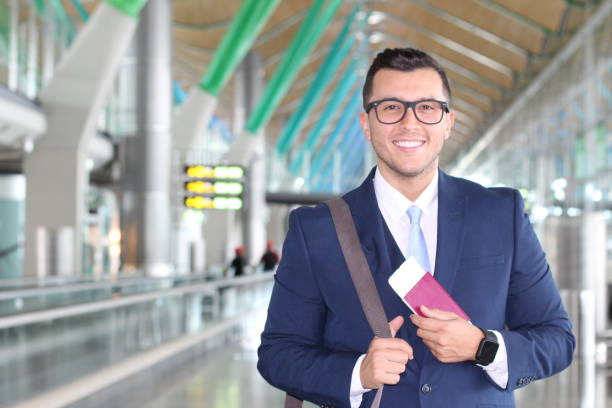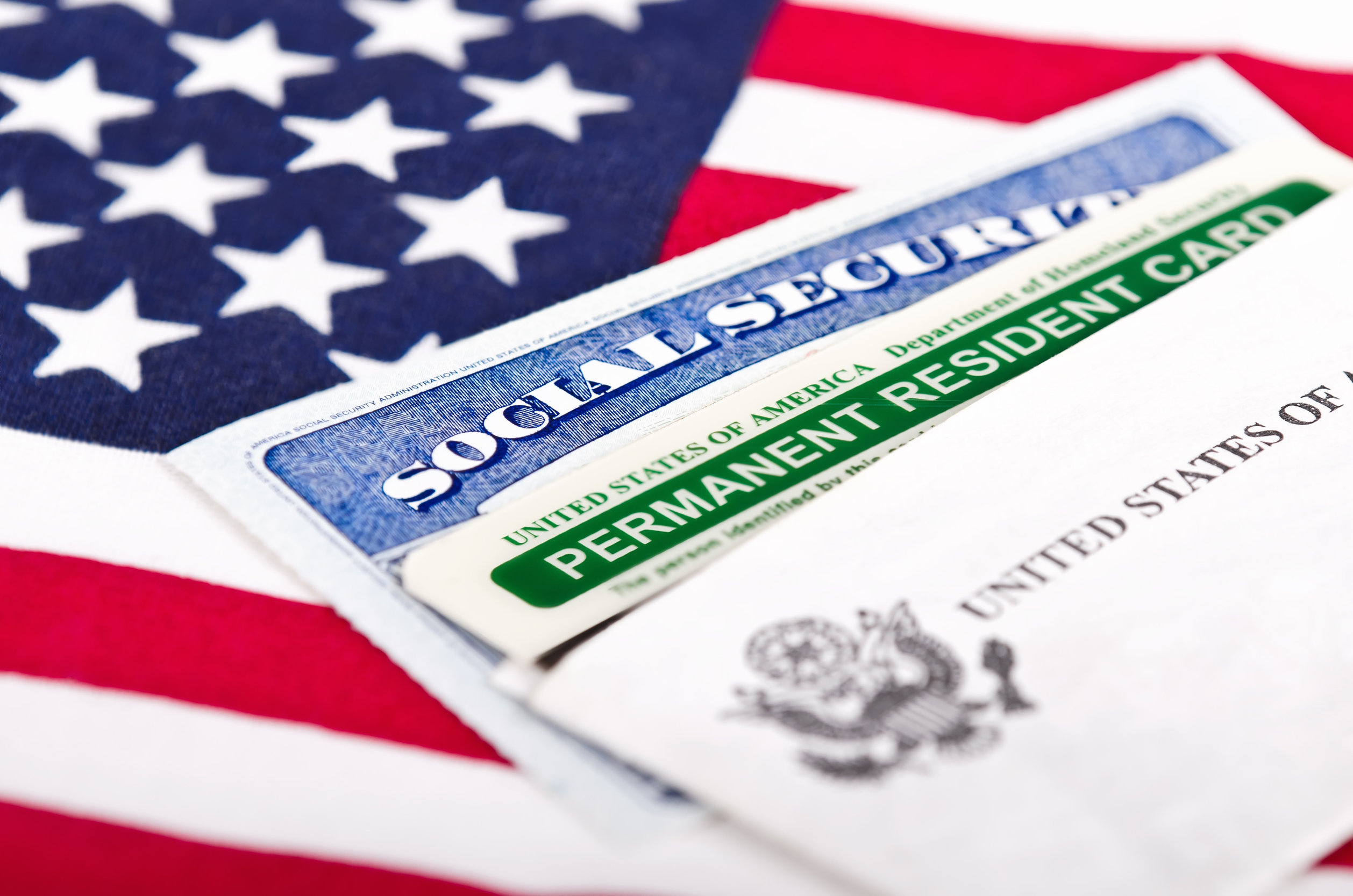K-1 Fiancé Visa
LOOKING FOR A K1 VISA LAWYER IN PHOENIX, AZ?
As a U.S. citizen, you may apply for a K-1 Fiancé(e) Visa to bring your foreign national fiancé(e) to the U.S. in order to get married. The K-1 visa is valid for 90 days and you are required to finalize your marriage within this period.
A fiancé(e) visa is solely for the purpose of marrying your foreign national fiancé(e). The fiancé(e) visa permits a stay of 90 days in the U.S. and is not renewable. After your marriage is finalized, you must petition for your foreign national spouse to obtain permanent residence (green card) through a process called adjustment of status.
If you do not marry your foreign national fiancé(e) within the allotted 90-day period, the K-1 fiancé(e) visa holder will lose lawful status and begin accruing unlawful presence after the 90-day stay has expired. Accruing unlawful presence may lead to a future bar to re-enter the U.S. for a period of 3 or 10 years, depending on the amount of unlawful presence incurred.
(602) 892-0212
Speak With Us Today
What We Cover
A Phoenix Immigration Attorney with Traditional Values & Modern Techniques. Find Out How Our Immigration Lawyer in Phoenix Can Help.

Fiancé(e): K-1 Visa
Your U.S. fiancé(e) may apply for a K-1 visa which allows you to enter the U.S. for a period of 90 days.
A fiancé(e) visa is solely for the purpose of marrying your U.S. citizen fiancé(e). After your marriage is finalized, your U.S. spouse may petition for your green card (permanent residence). The fiancé(e) visa permits a stay of 90 days in the U.S. and is not renewable. If you do not marry your U.S. citizen fiancé(e) within the allotted time period, you will lose lawful status and being accruing unlawful presence.
To be eligible for a fiancé(e) visa, both parties must be legally able to marry and display actual intent to marry within 90 days after arriving to the U.S. The parties must have met in person within two years prior to filing for the fiancé(e) visa, although a waiver of the meeting requirement is available.

Specialty Workers: H-1B Visa
The H-1B visa allows non-U.S. workers to temporarily work in the U.S. in a specialty occupation, requiring a higher degree or equivalent work experience.
To apply for the H-1B visa, the applicant must have a job offer with a prevailing wage from a U.S. employer. The prospective job must be in a specialty occupation related to the employee’s field of study, related to Department of Defense (DOD) research or the prospective employee may be a fashion model of distinguished merit.
USCIS requires a certified Labor Condition Application (LCA) from the Department of Labor (DOL) before you can apply for the H-1B visa. An LCA requires certain attestations by the employer relating to working conditions, wage, benefits and labor disputes.
Due to an annual quota of available H-1B visas and surplus of applicants each year, USCIS has created a lottery system for prospective applicants. Employers are required to register during the designated period to be selected through the lottery.
H-1B visas are initially approved for up to three years, and may generally be extended up to six years. The spouse and minor children (unmarried children under age 21) of the H-1B applicant may receive authorization to stay in the U.S. as derivative beneficiaries of their spouse or parent attaining temporary employment visa status.

Other Workers: H-2B Visa
The H-2B visa provides an opportunity for skilled or unskilled non-U.S. workers to work in the U.S. on a temporary or seasonal basis.
The H-2B temporary work visa is reserved for jobs that do not require a higher education degree, and the employer needs workers seasonally, temporarily, intermittently or for a one-time project. The applicant must be from an H-2B eligible country, have the right background for the job, and indicate an intent to return to their home country after the completion of the job.
USCIS requires a temporary Labor Certification from the Department of Labor (DOL) to approve the petition for a temporary work visa. A Labor Certification certifies there are not enough U.S. workers able, willing, qualified and available to perform the work. Additionally, employers must offer and be able to pay the prevailing wage and attest that employment of the non-U.S. worker will not adversely affect the wage and working conditions of U.S. workers similarly employed.
There is annual cap of H-2B visas issued each year, although some workers may not be subject to the limit. The H-2B visa program is divided into two fiscal periods, with each fiscal period receiving one half of the annual cap. Any unused visa from the first fiscal period may be carried over to the second fiscal period.
H-2B visas are granted up to the period of time authorized on the Labor Certification (based on employer’s need) and may be extended in increments of one year up to three years total. Individuals who have maxed out their H-2B are eligible to reapply after remaining outside the U.S for a period of three months before seeking readmission.
The spouse and minor children (unmarried children under age 21) of the H-2B applicant may receive authorization to stay in the U.S. as derivative beneficiaries of their spouse or parent attaining temporary employment visa status.

Trader/Investor Visa: E-1/E-2 Visa
The Treaty Trade or Investor visa provides nationals of selected countries with whom the U.S. has a treaty or other agreement to enter the U.S. to engage in international trading or investment activities.
Treaty traders (E-1) conduct substantial trade in goods, including but not limited to services and technology, mainly between the United States and their country of origin of which they are citizens or nationals.
Treaty investors (E-2) invest a substantial amount of money and direct the operations of a U.S. enterprise they have invested in, or are actively investing in.
To qualify for a trade visa, your business (you must have at least 50% ownership or be a key employee) should carry on substantial trade and a majority of the trade business should be with the U.S. and the treaty country.
To qualify for a treaty investor visa, you or other citizens from your country must have invested, or are in the process of investing, a substantial amount of capital in a bona fide U.S. business or enterprise.
Treaty or trade investors are allowed an initial stay of up to two years, and may request extensions in two year increments without any limit on the number of extensions.
The spouse and minor children (unmarried children under age 21) of the treaty trade or investor applicant may receive authorization to stay in the U.S. as derivative beneficiaries of their spouse or parent attaining temporary employment visa status.

Intracompany Transfer: L-1A/L-1B Visa
L-1A and L-1B visas enable U.S. employers to transfer employees from foreign affiliated offices, who either work in managerial positions or have specialized knowledge.
To enter the U.S. as a intracompany transferee, generally you must have worked for a U.S. affiliate company outside the U.S. for at least one year in the past three years prior to your application. Your employer must transfer you to its U.S. affiliate company as a manager, an executive or specialized knowledge worker. Your background and expertise need to match your job description for USCIS to approve your intracompany transfer.
The L-1A/L-1B classification also permits foreign employers to send executies to the U.S to establish a new office. Large U.S. companies may even obtain “blanket L-1 status” applications for frequent transferring of their non U.S. employees to their affiliated U.S. companies.

Visitor (tourist/business): B-1/B-2 Visa
Individuals who would like to enter the U.S. for tourism, medical treatment or a business trip may apply for a B/1 or B/2 visa.
B-1 visas are for the purpose of a temporary business trip (you may not work or operate a business in the U.S.), while B-2 visas allow entry into the U.S. for pleasure or tourism. The visas are often be issued in combination so that you may engage in approved activities under both visa categories.
Applying for a tourist/business visa may seem straightforward, but it is important that you demonstrate to the U.S. consulate or USCIS – the interviewing immigration officer and to Custom and Border Protection (CBP) your intent to return to your home country. Certain factors are helpful to demonstrate an intent to return, such as family ties, a permanent address and job in your country to which you will return.
Tourist/business visas may be issued for a period of five to ten years, but each entry to the U.S. is authorized for a stay of 90 days up to six months. Requests for an extended stay may be approved at the discretion of the immigration officer, although you may anticipate a Request for Evidence (RFE) to demonstrate your ongoing visa activities in the U.S.
Schedule Your Initial Consultation Today
Phoenix Fiancée Visa Lawyer
Eligibility Requirements for K-1 Fiancé(e) Visas
To qualify for the K-1 fiancé(e) visa, the parties must:
- Be legally able to marry.
- Have intent to marry each other within 90 days after the K-1 visa holder is admitted to the U.S.
- Have met in person within two years prior to filing for the fiancé(e) visa.
A waiver of the meeting-in-person requirement is available and may be approved if you show that it either violates strict and long-established customs associated with your fiancé(e)’s foreign cultural or social practices or meeting in person would otherwise result in extreme hardship to the U.S. citizen petitioner.
Sponsorship
The U.S. citizen petitioner must meet certain income guidelines, based upon the Federal Poverty Guidelines, to successfully petition for the K-1 fiancé(e) visa. If the petitioner is unable to meet the income guidelines, a co-sponsor may join the application in order to make up for the income deficiency. Alternatively, certain assets of the petitioning U.S. citizen may be utilized to fulfill the income requirement.
Sponsorship Liability
Note that if the person the U.S. citizen is sponsoring becomes a public charge, the agency that provides assistance may be able to sue the sponsor to recover the cost of the assistance, pursuant to section 213 of the Immigration Nationality Act (INA).
Phoenix Immigration Lawyer
Permission to Work
The K-1 holder may immediately apply for permission to work in the U.S. upon arrival. The employment authorization would only be valid for the same 90-day K-1 visa period. Alternatively, once the parties are married, the foreign national spouse may obtain employment authorization during the adjustment of status to permanent residency.
Derivative Beneficiaries
Your fiancé(e)’s children, unmarried and under 21 years of age, are able to come to the U.S. along with your fiancé(e). They are considered derivative beneficiaries and should be included on the same petition. They may enter the U.S. at the same time as your fiancée or at a later time, but not before your fiancé(e) enters.
Dedicated Phoenix Immigration Attorney With Real Answers
At Milovic Law Firm, our Phoenix immigration attorneys are dedicated to deliver the highest quality immigration representation.
Dedicated Team
We are devoted to our clients & aggressively pursue every option available to you.
8 Years Experience
We're qualified and experienced to take on your immigration case.
5 Star Reviews
Our standard of excellence is fueled by a desire to protect your immigration rights.
Free Consultation
Schedule your consultation with our Phoenix immigration lawyers today!
How We Are Trusted. See What They Say About Us.
Let me start by saying that Maya is awesome. We engaged Maya to help with my naturalization application preparation and submission to USCIS.
J.M.
Phoenix, AZI had the most pleasant experience working with Maya through me legal proceedings. She was always very prompt in responding to the various questions I had through this process.
N.S.
Phoenix, AZMaya did an awesome job walking me through the steps of my case and helping to ensure that all of the documents were filed with the court in a timely manner.
S.M.
Mesa, AZImmigration Blog
The EB-5 Investor Visa
The United States offers one of the world’s best business-friendly environments and the largest customer base for foreign investors. This...
The O-1 Work Visa – Individuals with Extraordinary Ability
The O-1 Work Visa - Individuals with Extraordinary Ability The United States’ robust economy and focus on entrepreneurship attracts some...
From Green Card to U.S. Citizenship: The Naturalization Process
From Green Card to U.S. Citizenship: The Naturalization Process Have you recently obtained your permanent residency? Congratulations! With your green...
Free Consultation
Get in touch with us. Speak with an experienced imimmigration attorney today.




